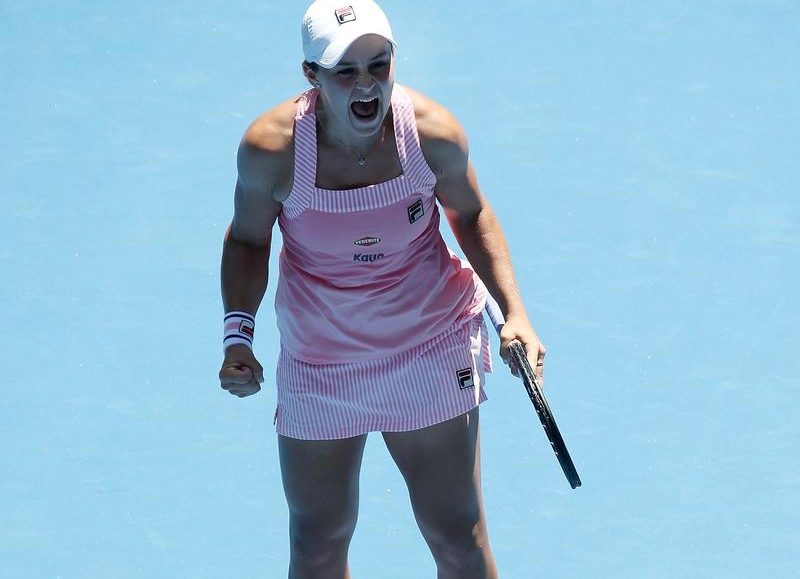
Ashleigh Barty wants it known she’s not only the world No.1 but also one of tennis’s biggest fighters.
Barty will enter the new year as very much the hunted following her stunning 2019 campaign.
But for all the trophies and accolades she has accrued, it is Barty’s remarkable come-from-behind record that underpins her unprecedented rise from outside the top 10 to year-end No.1.
Not only did Barty win a tour-best 57 matches, the 23-year-old racked up an unrivalled 13 victories from a set down.
“I think that’s an Australian quality. We all want to be known as fighters,” Barty told AAP.
“I certainly want to be known, when my career is done, as someone who was respected by their peers, gave everything on the court and never kind of rolled over but played the game in the right spirit.
“Hopefully I’m hitting all those things and just trying to give yourself a chance to stay in each match.
“You never know what can happen in sport. There are no guarantees, no certainties and just staying in the game as long as you can is really important.”
Barty completed successive comeback wins over Belinda Bencic and world No.2 Karolina Pliskova en route to the title at the prestigious season-ending championships in China.
But it was her tenacious fightback from a set and 3-0 down against Amanda Anisimova in the French Open semi-finals, having blown a 5-0 lead in the opening set, that most emphatically demonstrated Barty has the substance to match the style.
“There have been so many different moments throughout the year that I’ve been extremely proud of myself and some maybe less obvious to the rest of the world than it is to me, some of the bigger moments to be able to kind of get through matches,” she said.
“One that springs to mind is the semi-final at the French Open.”
That season-defining comeback in Paris also came without help from trusted mentor Craig Tyzzer.
The world No.1 is a fan of the WTA’s on-court coaching innovation without being reliant on it, which is a good thing given it won’t be allowed during the Australian Open.
“There are times where it does help me. There are times when I don’t use it,” Barty said.
“If anything, it’s more just to get a different voice. It’s there to use so I figure why not use it when it’s in the rule book and you’re allowed to.
“If you can use it effectively, it’s a positive thing. Tyzz does an incredible job of keeping it very simple, being very clear and concise in what I need to do.
“But in also saying that we play the grand slams without it and I have no issue trying to figure it out by myself and problem solve by myself. That’s all part of the jigsaw puzzle that’s our game.”




